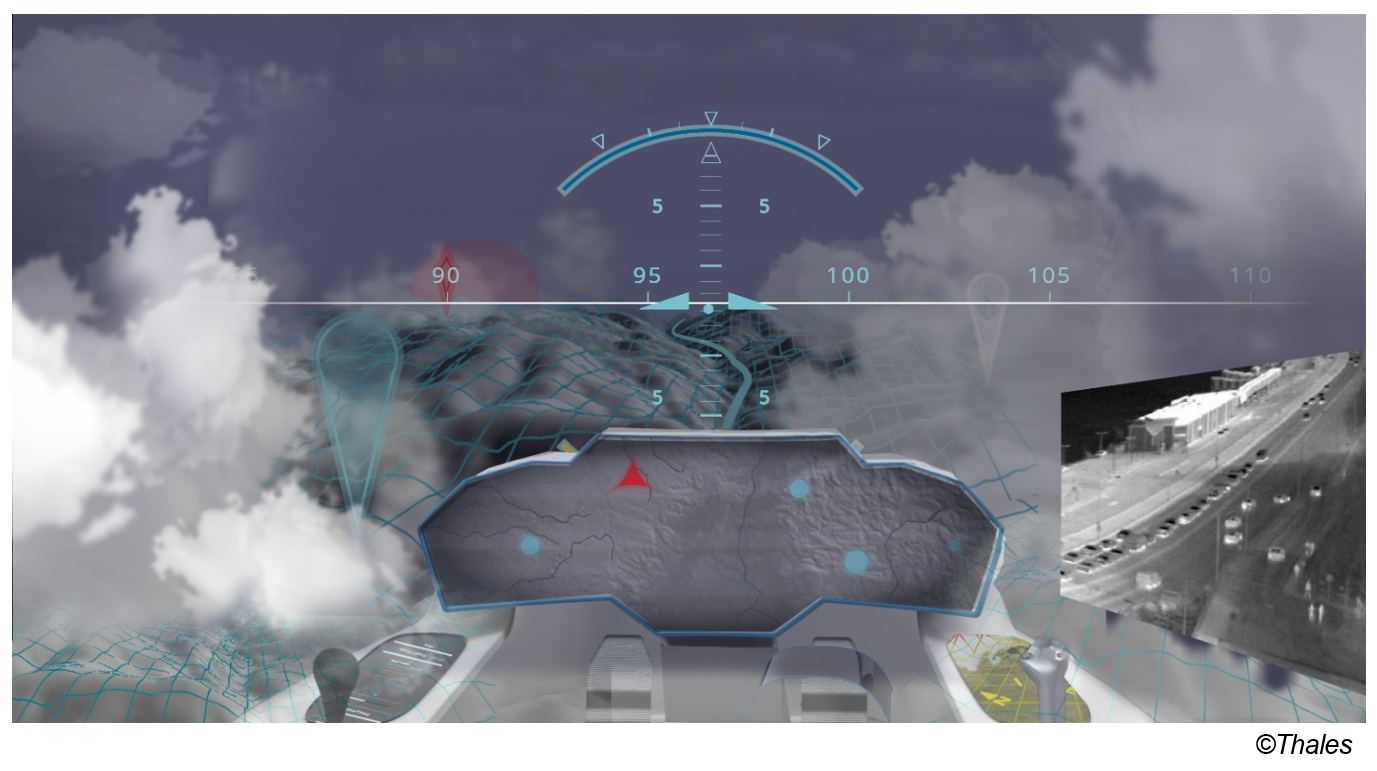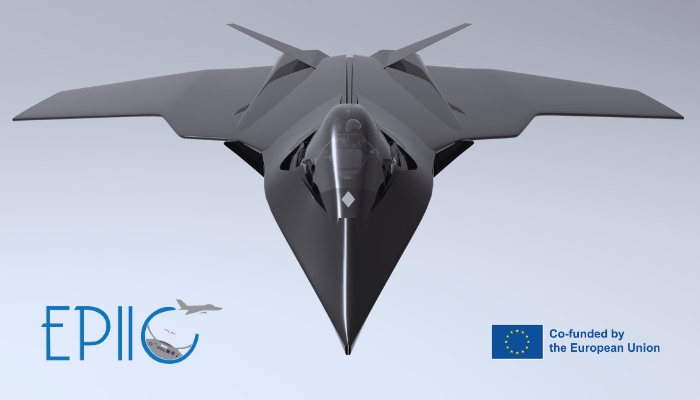In the dynamic realm of air combat, the EPIIC project, led by Thales, emerges as a beacon of innovation, reimagining human-machine interaction with cutting-edge technologies to craft an immersive environment where the machine amplifies the pilot’s capabilities.

EPIIC: A Visionary Leap Towards Enhanced Air Combat
The EPIIC project aims to revolutionize air combat in Europe through innovative technologies and collaborative efforts. With a budget of €75 million from the European Defence Fund, the project brings together 27 manufacturers and research organizations from 12 European nations. The goal is to enhance pilot interfaces and interactions for fighter cockpits, ultimately transforming the way pilots engage with machines.
One of the main objectives of the project is to accelerate the OODA loop (Observe, Orient, Decide, Act), enabling pilots to become strategists capable of managing resources and adapting mission phases in real-time. Over the course of three years, EPIIC focuses on developing technologies that improve situational awareness, facilitate rapid decision-making, optimize human-machine interaction, and monitor the pilot's physiological state.
Thales: Inventing advanced technologies for future cockpits
Thales, a global leader in advanced technologies notably applied in defense, is not only coordinating the EPIIC project but is also developing key technologies. These include advanced helmet sights that offer a wider field of vision, superior immersion, and an intuitive display. The helmet sights also incorporate biological sensors to assess the pilot's condition. Thales is also working on the Crew Monitoring System, which monitors the crew's physiological state.
Airbus Defense & Space GmbH: Redefining Aerospace
With a legacy of pioneering technologies, Airbus Defense & Space GmbH is focusing on describing future mission setups and harmonizing work on technology gaps. Their holistic approach is a testament to European military collaboration and effectiveness, promising to alter the operator experience fundamentally.
Leonardo: Innovating with Virtual Assistants
Leonardo, a global leader in Aerospace, Defence, and Security, is exploring innovative Virtual Assistants within EPIIC. These assistants aim to enhance situational awareness, decision-making, workload optimization, and training effectiveness, supporting the operation of next-generation fighter aircraft.
Diehl Aerospace: Expertise in Avionics Products
Diehl Aerospace, a joint venture between Diehl Aviation and Thales, brings extensive experience in military avionics products on major European platforms and international cooperation. The company’s capabilities in integrated modular avionics and platform avionics will be basis for analyzing, evaluating and defining new concepts for Large Area Displays to support the most intuitive and effective way of accessing information for manned-unmanned teaming missions in the frame of EPIIC.
Tecnobit - Grupo Oesía: Cutting-Edge Technological Solutions
Tecnobit - Grupo Oesía is renowned for designing, developing, manufacturing, and maintaining cutting-edge technological products and solutions in intelligent vision, simulation, and tactical and secure communications. As part of the Oesía Group, a Spanish multinational, Tecnobit contributes to European strategic autonomy with its innovation hub in Valdepenas.
INDRA: Advancing Crew Monitoring Technologies
INDRA, a global engineering technology leader, is developing innovative visualization and interaction techniques, including augmented reality, eye tracking, and brain-computer interface, aiming to adapt the system to the crew’s operative status in a fighter cockpit environment.
Dassault Aviation: A Legacy of Excellence in Aerospace
Dassault Aviation, with over 3000 military and civil aircraft in service, epitomizes world-class expertise in aircraft design, development, and support. Reporting €6.9 billion in revenues for 2022 and boasting a workforce of 12,700 professionals, Dassault is a pivotal contributor to EPIIC. As the Combat Air System architect and cockpit design coordinator for the Next Generation Fighter, Dassault brings its vast experience to the project. Their focus within EPIIC centers on the Crew Monitoring System and the Virtual Assistant, aiming to enhance cockpit safety and facilitate seamless crew-system interactions.
Airbus Defense & Space SAU: Enhancing Future Fighter Aircraft Interactions
Airbus Defense & Space SAU designs and manufactures tactical and strategical airlifters, multirole aerial tankers and advanced combat aircraft operated by armed forces all around the world. Within the framework of EPIIC, Airbus Defense & Space SAU is applying its expertise in Human Factors Engineering applied to military aircraft cockpits to analyze and elaborate innovative and effective interaction modalities to be used, individually or combined, by the pilot to fully exploit the capabilities of future fighter aircraft.
Saab: Leading the Charge in Adaptive HMI
Saab, a global defense and security trailblazer, is committed to creating a safer world through cutting-edge technology. Empowered by its 19,000 talented people, Saab constantly pushes the boundaries of technology to create a safer, more sustainable and more equitable world. With expertise spanning advanced aeronautics to underwater systems, Saab is a trusted defense partner for many nations. In the EPIIC framework, Saab pioneers the Adaptive HMI study, innovating interfaces for future operational needs. Leveraging artificial assistance and immersive cockpit designs, Saab is redefining combat aircraft cockpit standards.
Join the EPIIC Journey
Overall, the EPIIC project is a transformative venture that is shaping the future of military cockpit technologies in Europe. Stay tuned and join us on this exciting journey as we unveil the potential of collaborative combat and achieve technological autonomy!
